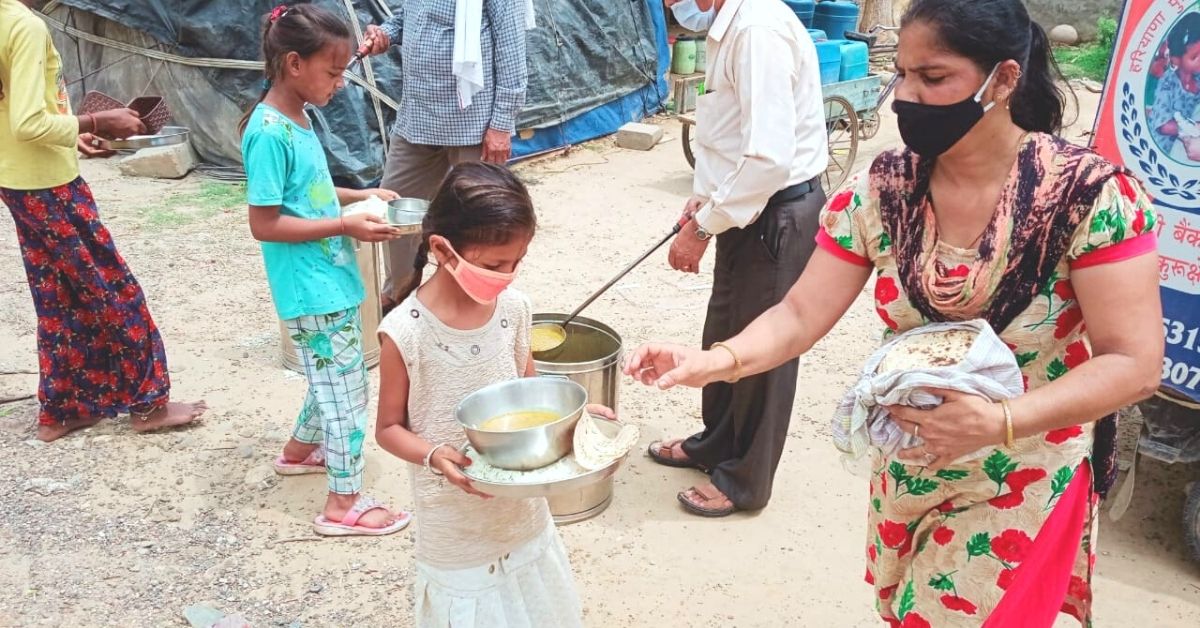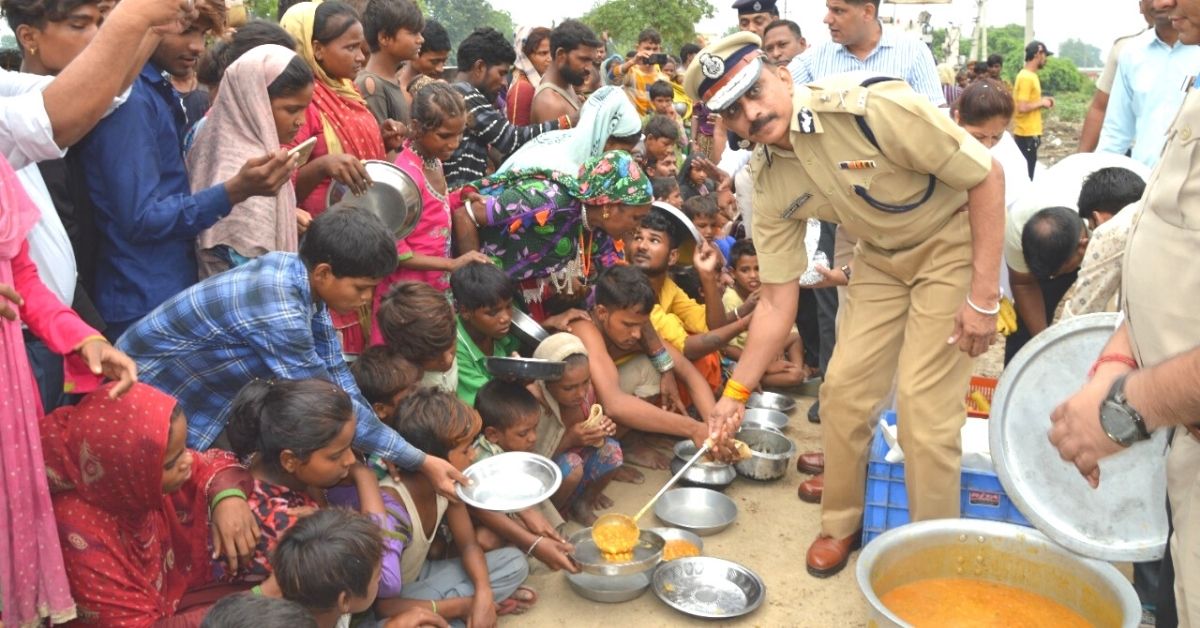Every afternoon, around 2,000 food packets are distributed across five districts of Haryana to construction workers, street dwellers and people belonging to other underprivileged sections of society, who struggle to earn even a single meal for the day.
This social endeavour has not been undertaken by an NGO or social group, but instead a network of around 3,000 police officials who contribute money and make concerted efforts to deliver food to the needy every day.
The initiative started from Madhuban in June 2017 to aid 40 street dwellers, but today, the benefits of this movement have reached thousands across Karnal, Rewari, Gurugram, Kurukshetra and Faridabad. This concept is known as Roti Bank.
Every drop counts in an ocean

It began when Shrikant Jadhav, the Additional Director General of Police with the Haryana State Narcotics Control Bureau, saw construction workers and their kids starving and struggling for food.
“At home, the difficult choice to make is which food item to cook for lunch or dinner. But the poor face the question of whether they will be able to have even one meal for the day,” he tells The Better India.
Shrikant says he felt pained when he saw their ordeal and decided to bring a few food packets. “I usually distribute sweets, snacks and fruits among children at a construction site in the neighbourhood. One day in 2017, I decided to help as a small gesture and brought 40 packets from home. But within minutes, around 100 children gathered. I realised that there were a lot more people who needed help,” he recalls.
He says he increased the number of food packets and appealed to his colleagues and subordinates to contribute to his cause. “Every official brought 2-4 extra rotis as per their wish, and the vegetable and dal were cooked in the police canteen kitchen through the funds contributed by everyone,” he adds.
Shrikant says that as the efforts became consistent, they set up a bank account to deposit funds. These were channelised for cooking and distributing the meals. “Thus, the Roti Bank came into existence,” he says.
Once it became a success, word of mouth spread among officials and more people started contributing to the cause. The movement’s popularity spread among neighbouring districts, and soon, other officers from IPS and IAS cadres joined the effort. Each cadre has a bank account and a coordinator. They also have a separate kitchen to prepare food, as well as a distribution system.
A win-win situation

Shrikant says that apart from supporting the poor, the project has evolved in multiple ways. “It has helped bridge the gap between the police and common people. Empathetic efforts help build trust among citizens. Moreover, it helps the police to be more sensitive towards the people,” he says.
“It is a win-win situation for all,” he adds.
Hari Om Das, director at the Vatsalya Vatika Ashram, says that the institution receives food from Shrikant and his team every week. “The children at the institution belong to slum areas and pursue academics, from primary to post-graduate. The effort also helps bridge the trust gap between the police and underprivileged section of the society,” he adds.
Shrikant says that the plan is to have such initiatives across all the districts in the state. “It would be a commendable feat if such Roti Banks are opened across the country,” he adds.
Edited by Divya Sethu
No comments:
Post a Comment